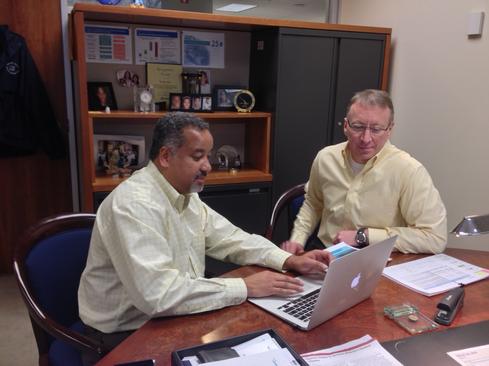
When it comes to Big Data, few companies are as committed to utilizing its innovative potential as Merck & Co., Inc. and its subsidiaries.
Jerry Megaro, Director Innovation & Manufacturing Analytics, spoke to Temple’s Institute for Business and Information Technology (IBIT) about his latest large-scale project: overhauling Merck’s data analytics technology to improve the manufacturing process for one of their most important vaccines.
But there were roadblocks. Previous technology required time-consuming spreadsheet analysis that was inflexible and limited by storage and memory capabilities. In order to track the complex, multi-dimensional process of creating and testing a vaccine, Megaro needed a better technological toolkit.
So he turned to Big Data.
“With my knowledge of analytics, I persuaded VP of Merck Manufacturing Department Information Technology George Llado to apply the technology to manufacturing,” Megaro said, recalling their first fruitful discussion—which led to Llado’s sponsoring of the project.
With the support of a highly skilled team, Megaro achieved in three months what would have previously taken at least one year: 15 billion calculations, and over 5.5 million data comparisons.
“Rather than buy software and hardware, we decided to use open source,” Megaro explained. “The data generated from the manufacturing computers had to be cleaned and uncompressed, and aligned. We figured out how to align it so that we could perform more specific analytics and correlations.”
These analyses led to vaccine production improvements, as well as two prestigious awards: the Frost and Sullivan MFG Council Leadership Award and ranking as number 48 of the InformationWeek Elite 100.
“We employed quick, disciplined decisioning and empowered Jerry to drive experimentation, while collaborating and driving business results,” said Llado. “[The technology] provides more product, lowers costs, and most importantly improves access to our vaccine.”
The company’s drive to innovate within the industry is one of the myriad reasons IBIT has partnered with Merck as a member: mentoring students, encouraging innovation, and fostering an environment defined by “the two C’s—Competition and Collaboration,” in the words of Llado, who also serves on the Fox IT Advisory Board.
“The payback for us has been enormous,” he said, reflecting on Merck’s involvement with Temple. “Top of the list would have to be watching the students thrive and grow…Second would have to be the quality of students that Merck has recruited. Lastly, the opportunity to network with many of the Advisory Board members has proven to be worth its weight in gold.”
In Llado’s opinion, striving for innovation means investing in people. When evaluating Merck’s recent innovation, he underscored how their game- changing improvements to vaccine production would not have been possible without a steadfast commitment to human capital development.
“I firmly believe that [this commitment] distinguishes us from the competition, as we look to build leadership behaviors that are universal, and fundamental to creating an innovative culture.”
For the pharmaceutical industry—as well as for Fox students who aspire to career paths paved with similar values—Merck is a beacon of inspiration.



